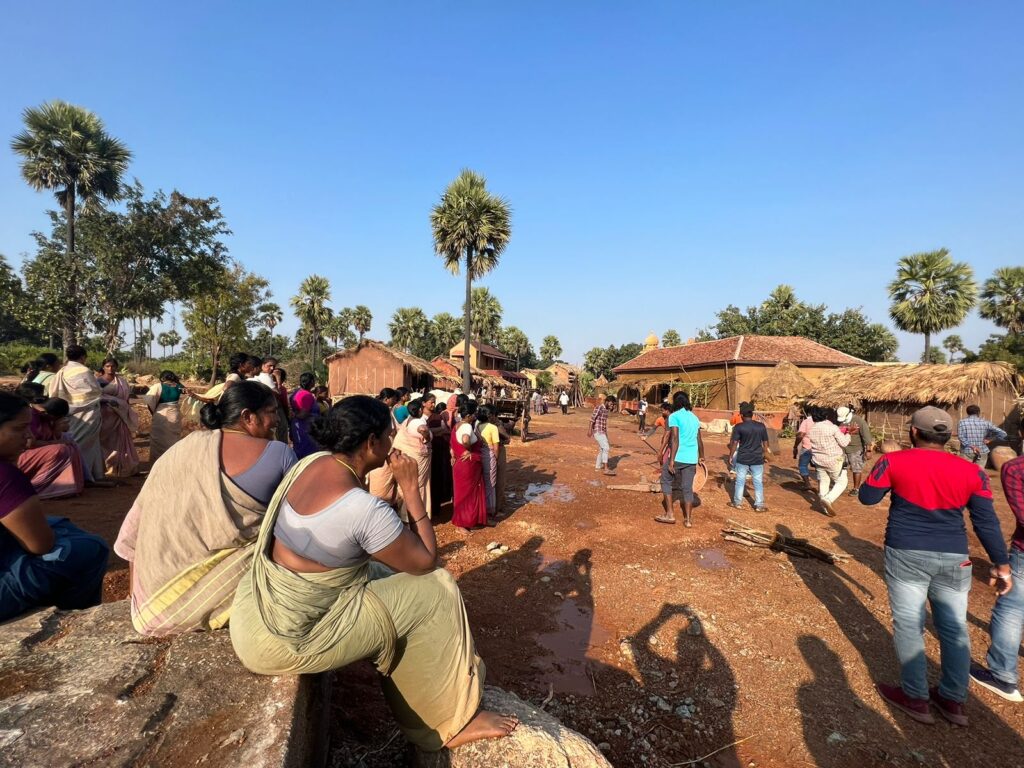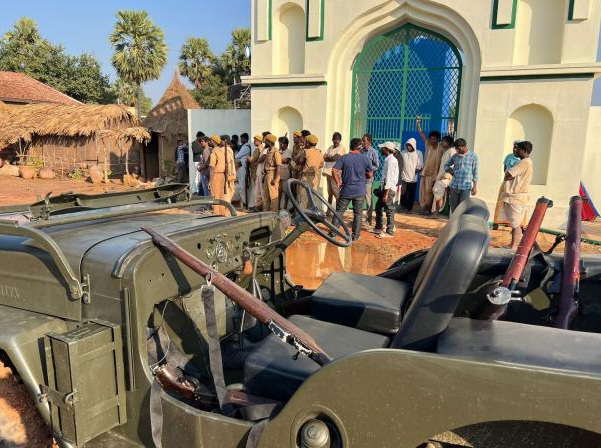Beyond public gatherings, on-the-ground activity, media message, or padayatras by its leaders, the TRS would have to combat the BJP’s new and most effective campaign vehicle—films.
The movie Razakar, which is now being filmed in a studio on the outskirts of the city, chronicles the persecution, humiliation, atrocities, and massacre of Hyderabad state’s commoners, particularly Hindus, at the hands of the Razakars militia during the reign of the previous Nizam.
Earlier this year, the BJP, TRS, and AIMIM engaged in a fierce battle over Police Action and Operation Polo. The TRS-MIM observed September 17 as Integration Day, and the Congress observed it separately. The saffron party had observed September 17 as Liberation Day.
While movies have long served as a political leader’s ally, particularly in the south, they were typically used to enhance the reputation of one central figure — NTR, MGR, and Jayalalithaa — but now movies will provide context.

Biopics and perspective movies have been utilised to promote Andhra politics over the past ten years.
“Films are the new tool for managing political perception and providing context after The Kashmir Files’ popularity. Movie director Ram Gopal Varma recently announced a two-episode movie on Andhra Pradesh politics. “Once you set a context, especially drawing from a slice of history, it can reach out to more people, influence the masses more deeply than even the cumulative impact of TV and mobile,” he said.
The Kashmir Files was a watershed, disruptive event in Indian cinema. The concept of Razakar is quite intriguing and seems very promising,” Varma remarked.
On a set that has been transformed into a 1946 village, director Yata Satyanarayana was frantically filming a segment of the fifth schedule, out of a total of 19. The Razakars, led by a captain, abduct a young girl as the action gets underway while her parents protest in vain, the rest of the villagers scream and cry, and then they helplessly blame their misfortune.
Is there a clear communal bias in the messaging intended to influence the present? Is there a historical error or a recasting of images that were previously inaccurately contextualised?

In an interview with #KhabarLive, controversial historian and author Vikram Sampath said, “For a long time, we were taught knowledge of history would be a threat to ourselves, our country, and society. His most recent book, Bravehearts of Bharat, just hit the markets. It was a left-leaning narrative where a fabricated past was presented as a means of ensuring societal harmony. A effort aimed at developing a nation cannot be based on suppressing its past. In order for society to reconcile with the past, truth and reconciliation are by far the better options.
Sampath added, “Let every truth be spoken, let history of every era be revealed,” adding that in a democracy, people would make better choices if they had the information.
But prior to the Telangana elections the following year, political parties will not be concerned with the previous reality. Asaduddin Owaisi, the president of AIMIM and a member of the Lok Sabha from Hyderabad, believed that the combined 360-degree efforts to incite hatred toward Muslims were reaching their zenith and that the movie was just another unfortunate tool in the larger inhuman project of “othering.”
“Who knows, these strategies might succeed. A brutal murder of a man’s lover is converted into a story of love jihad. Muslims are made to appear to be a target of suspicion, disapproval, and hatred in everything from movies, media, novels, stories, and news broadcasts. How much longer can this go on?” Owaisi responded in despair.
“But I am sure communal designs would not yield much results as long as Chief Minister K. Chandrashekar Rao is running the state of Telangana,” Owaisi remarked, expressing optimism.
Senior members of the BJP, Congress, and TRS declined to speak publicly, but they were all clearly greatly affected by the news of the film and responded in accordance with party policy.
“It might cause unrest in the community… However, we won’t know until we watch the film. A TRS leader expressed his expectation that the censor board will be impartial.
According to Gudur Narayana Reddy, whose Samarveer Creations is producing the movie with a grand mounting and expensive production values, “The BJP only hopes the movie will help create a context about the Razakars, Operation Polo, the atrocities during the last days of the reign of the Nizam, and the heroic role of Sardar Vallabhbhai Patel in bringing Hyderabad state into India.”

“People will learn of the atrocities, like the episode of Gundrampally village, where over a hundred Hindu women drowned in a well to escape the marauders; an episode no less ghastly than the Jallianwala Bagh massacre,” Narayana Reddy said.
Beyond politics, it is also a new wave in movies, a trend heralded by Vivek Agnihotri, the director who disrupted conventional Bollywood mindset with his Files series. “I make political narrative films with a strong historic setting and an unconventional approach. But it is the passion and convictions of filmmakers, which create success or failure,” he said.
We can affect people’s perspectives, but necessarily their political decisions, Agnihotri remarked in response to the impact query. People will be able to see things differently if a filmmaker accurately depicts historical events. The Tashkent Files caused many Indians to reassess their opinions of the late prime minister Lal Bahadur Shastri; many saw the film for the first time and became aware of his grandeur. According to Agnihotri, “The Kashmir Files has altered how the world perceives the Valley’s Pandit genocide.
The BJP will hope Razakar helps them create an atmosphere in which grouping the TRS and MIM as partners will ease their electoral campaign by the time Razakar is released in the middle of the following year. #KhabarLive #hydnews #hydlive
